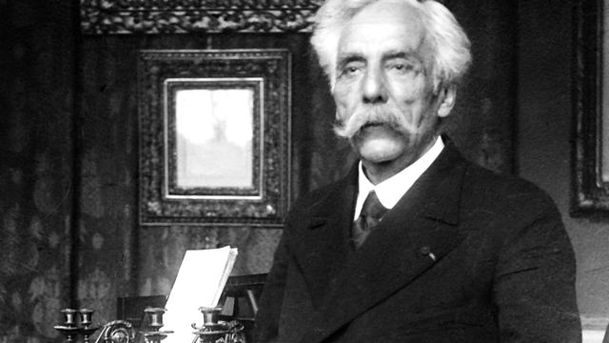Composer of the Week - Gabriel Faure (1845-1924) - Episode 1

Donald Macleod travels to Paris to chart the life of Gabriel Fauré. He's joined by the composer's English biographer Jessica Duchen, pianist Billy Eidi, and the leading authority on Fauré's music Jean-Michel Nectoux. Listen to his work and you'd think he was the perfect Parisian gentleman. Fauré's music is the epitome of charm, of a Gallic gentleman's reserve. There's nothing offensive, only page after page of utter beauty and ravishing melody. But look into his eyes and you get hints of another story: those dark orbs of a deep-thinking southerner, a man who always struggled for recognition, but who never lost the ability to seduce a lady. This week Donald Macleod is in Paris to follow Fauré's footsteps, and to probe this most enigmatic of personalities. From the start, Fauré is an outsider. Sent by his family to study at a school for gifted youngsters, the composer quickly decides that the traditional route is not for him. Instead of heading to the conservatoire, dogged by its reputation for fustiness, he falls in with the world of aristocratic music-making. And at the former home of singer Pauline Viardot, Donald Macleod rediscovers something of the allure for Fauré, not just musical opportunities but also the attraction of a highly cultured lady in the form of Viardot's daughter. We soon discover that this is a template for the composer's life. A few blocks away we take a look inside one of the city's stunning former musical salons. Here, Winnaretta Singer, daughter of the sewing machine king, hosted the likes of Marcel Proust and Georges Sand. Fauré too was a regular, and even embarked on a dramatic work for the salon with legendary writer Paul Verlaine. It was to be ill-fated though: Verlaine succumbed spectacularly to drink and his plots became so off-the-wall that Fauré had to abandon his project. There are more refined moments too. In the ever-controversial church of La Madeleine, at once a tribute to the revolution and a souped-up banking hall cum railway station, we find the inspiration of Fauré's most famous work, the Requiem, in the death of a local architect, the passing of the composer's own father, and the astounding acoustics of the building itself. But it's in the equally echoey hallways of the Paris Conservatoire buildings where we get closest to the real Fauré. It took an internal scandal before they would let him in, but here at last Fauré gets a chance to cement his reputation as a member of the French establishment as director of the institution. Here we find the very room where he had his office, and (in the Salle Fauré) the stage where he would take performance exams, and even an ante-room solely for students to pull themselves together or recover their shattered composure before and after playing to the great man. Donald Macleod begins his week in the shadow of the Eiffel Tower, at Passy Cemetery, where Fauré is buried with family members, friends, and leading cultural figures. Together with writer Jessica Duchen he charts the complex web of personalities in the composer's early life, including a formative bond with the musician Camille Saint-Saëns which at times seemingly bordered on the sexual.